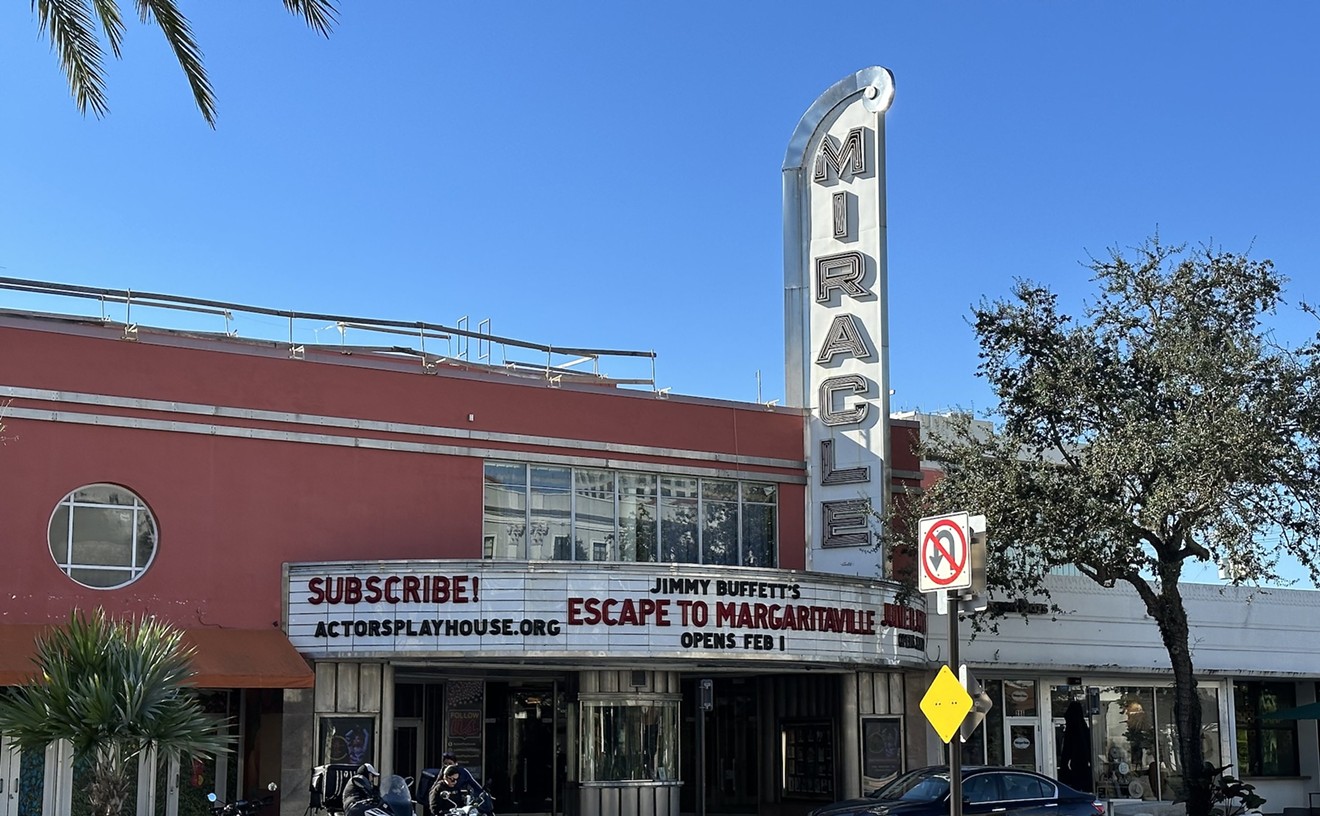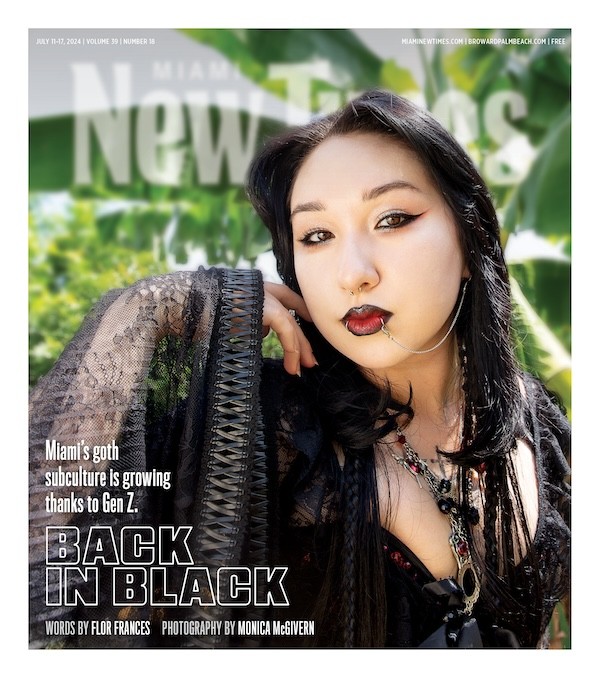With so many choices offered, New Times has already begun checking out some features to help sort through what you ought to keep an eye out for. Three examples are encapsulated below.
Ahed's Knee
It's slightly disappointing that Ahed's Knee is limited to a virtual screening. The film, which won a Jury Prize at the 2021 Cannes Film Festival, is the daring and divisive cinema that electrifies and thrives in the festival environment. Director Nadav Lapid's Ahed's Knee is provocative, aggressive, and blunt — and it's designed that way. It's a movie you need to see for yourself, for better or worse.The film opens as filmmaker Y (Avshalom Pollack) — a clear surrogate for Lapid — is in the middle of preproduction of his latest film centered on Palestinian activist Ahed Tamimi. While casting the role of Ahed, Y accepts an invitation from Yahalom (Nur Fibak), a young and earnest deputy director in the Ministry of Culture's library department, for a screening of one of his past films. Similar to Stardust Memories, the retrospective setting leads to the filmmaker's introspection. In the case of Ahed's Knee, the visit inspires a meditation on the role of art and artist as well as their relationship to outside entities such as the state and the audience. The catalyst here is a piece of paper that Yahalom needs Y to sign. The document is a waiver securing that Y will not deviate from government-approved topics in his remarks to the community. Their initially friendly relationship turns adversarial and destructive over the course of the film.
The tension caused by the bureaucracy, combined with the meta-nature of the narrative, allows Lapid to continue formal experimentation that is a hallmark of his work. Lapid undulates between an immersive subjectivity and a Brechtian distance that may cause a sense of whiplash as strong as the whip pans punctuated throughout the film. Some of these stylistic flourishes work and some don't, but they're always interesting. Above all, Lapid has a confrontational camera. At times it moves almost erratically, at others it's defiantly static even as it is encroached upon and enveloped by its subjects.
With his fourth feature, Lapid earns his reputation as the bad boy of cinema while also solidifying his personal style. This is a potentially controversial choice for MJFF, as Lapid levies strong condemnation from the Israeli government. You may or may not "like" Ahed's Knee, but it certainly will spark conversation and contemplation. Screens virtually Friday, January 14, through Wednesday, January 26. Trae DeLellis
All Eyes Off Me
All Eyes Off Me is the kind of film that catches one off guard with each pivot it makes. Split neatly into three sections, it casually bounces between a small cast of characters, each of which seems to be begging for distraction from their own worlds. The first finds its character wandering through a party, contemplating and discussing having an abortion. The second finds another young woman and her new boyfriend spending every day and night indulging in each other's bodies but struggling when it comes to getting him to embrace her kink. The last takes this same woman and explores her relationship with a man whose dog she walks.Though the pieces are very loosely connected, Hadas Ben Aroya's film is more interested in the tonal flow of the three parts combined. It is rather frank about everything it presents, particularly the extensive sex scenes of its central act, and the intimacy of its often-handheld camerawork is as stifling as it is intriguing.
Comparisons to Euphoria (presumably because of the opening act's party aesthetics and blunt sexuality) feel a bit misplaced, as All Eyes Off Me is more in tune with the woman-driven (and directed) mumblecore-adjacent films of Desiree Akhavan or Lena Dunham. There's an almost amateurish touch in the way scenes unfold as though improvised, with long, messy conversations and naturalistic body language being a priority for these characters. By the time each segment ends, one can't help but reflect on themselves and the characters within the film and how we all try to fill the silence with our own ramblings. As cliché as it sounds, the film posits that maybe there's beauty in just being in the moment, whether that moment is as fulfilling as we all think. Screens virtually Friday, January 14, through Wednesday, January 26. Juan Antonio Barquin

Charlotte Gainsbourg and Jane Birkin in Jane by Charlotte.
Photo courtesy of Miami Jewish Film Festival
Jane by Charlotte
A unique power of documentary filmmaking is its ability to inform. You usually enter not knowing much about a subject but emerge feeling like a newly minted expert. That's not necessarily the case with Jane by Charlotte, a new documentary about Jane Birkin, the British-French icon, told through the eyes of her daughter, the British-French icon Charlotte Gainsbourg. It is more about experiencing the subject than being informed. As a result, enjoyment of the film may be correlated to one's prior knowledge of the two women and their cultural impact.Falling somewhere between a documentary and a home movie, Jane by Charlotte is an intimate and at times elusive portrait of Birkin as artist, muse, and mother. Divided between Birkin onstage and at home, the film consists of relaxed conversations between the two women. The film's allure is almost difficult to explain, which makes sense since both its subjects are the epitome of je ne sais quoi. Despite the specificity of this setup, what emerges is a relatable and universal understanding of mother-child relationships.
At times shapeless and technically imprecise, many of the film's faults are also its strengths. What the film lacks in structure, it makes up for in fluidity and intimacy. Likewise, its lack of pure objectivity, the framework of daughter documenting mother allows Birkin to open up in ways she wouldn't have for any other filmmaker. Gainsbourg shows real promise as a filmmaker through her empathy and general curiosity.
While the film shows Birkin very much alive, touring the world from Japan to New York and retaining all the effervesce and unique charm that made her an unlikely star in the 1960s, mortality is a foundation to the film. Among more cheerful subjects, they often discuss aging, dying, and loss. There are two figures that hang over the film through their absence: Kate Barry, Birkin's eldest daughter, and Serge Gainsbourg, Charlotte's father. Though scant in details about Barry's passing, the shorthand between Jane and Charlotte reveals how that loss has impacted them profoundly.
Both love and loss fuel the film — and what makes it feel universal. One senses that Charlotte Gainsbourg wishes she had made films like this about her sister and her father. The audience can also relate to that desire to preserve and remember. Jane by Charlotte is an extraordinary family portrait about an extraordinary family that manages to make it all feel wonderfully ordinary. Screens virtually Friday, January 14 through Wednesday, January 26. Trae DeLellis
Miami Jewish Film Festival. Thursday, January 13, 2022, through Thursday, January 27, 2022, at various locations; miamijewishfilmfestival.org.













